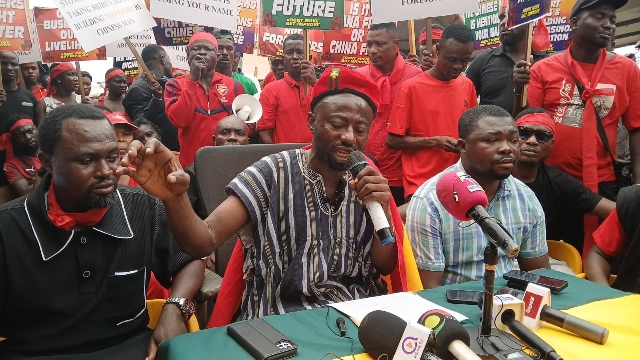Holy Gardens market traders resist eviction by foreign firm
 Angry traders at Holy Gardens market in Accra
Angry traders at Holy Gardens market in Accra
More than 3,000 traders at the Holy Gardens Police Station Market in Accra are raising alarm over what they describe as an unlawful eviction attempt by WB Impex Limited, a foreign-owned company.
The traders, many of whom have operated in the market for decades, say the move threatens their livelihoods and undermines their rights as Ghanaian citizens.
The traders have long conducted business on government land. While previous efforts by WB Impex Limited to displace them failed, the company has resurfaced with renewed claims of ownership and recently issued an eviction notice.
According to the traders, the eviction notice rests on shaky legal grounds.
They argue that the court order secured by WB Impex Limited is directed at one Moses Abor—who, they insist, neither owns the land nor invested in the construction of the market stalls.
Applying that order against thousands of traders, they contend, is unjust and legally flawed.
The traders warn that enforcing the eviction could have devastating consequences, including:
Overnight loss of livelihoods for thousands of families
Destruction of income sources for traders who regularly pay VAT and other taxes
Disruption of vital supply chains serving the local community
Erosion of confidence in Ghana’s ability to protect indigenous businesses from unfair foreign interference
The traders are appealing to the government, the Judiciary, Parliament, traditional rulers, civil society, and the media to intervene.
Their key demands include:
An immediate suspension of all eviction processes until a fair and transparent resolution is reached
Government recognition and regularisation of their market to safeguard their rights as local traders
Determined to defend their livelihoods, the traders vow to use every lawful means available to resist the eviction.
They are calling on Ghanaians and stakeholders across society to stand in solidarity.
The outcome, they warn, will carry significant implications not just for their market community but also for the broader principle of protecting indigenous businesses from external threats.
Source: Classfmonline.com/Edem Afanou
Trending News

Parliament presents Democracy Cup Trophy to acting Chief Justice
23:18
PNC congratulates Akwatia MP-elect
14:10
IGP monitors Akwatia by-election, assures voters of security
09:32
Abraham Koomson unhappy about Mahama’s decision not to seek re-election in 2028
05:28
E/R: Asuboi residents demand safety measures on Accra-Kumasi highway after rising fatalities
01:21
Tema East MP attends induction of new Eastern Naval Command Flag officer
23:12
DSTV to go off-air by Sept 6 over price reduction brawl with gov't-Sam George
13:55
E/R: CRIG creche holds colourful graduation ceremony at Akyem New Tafo
09:21
Tema water shortage a threat to gov't's 24-hour economy-GFL
05:18
Traditional leader urges national cleansing, claiming politicians perform rituals during last elections
01:06




